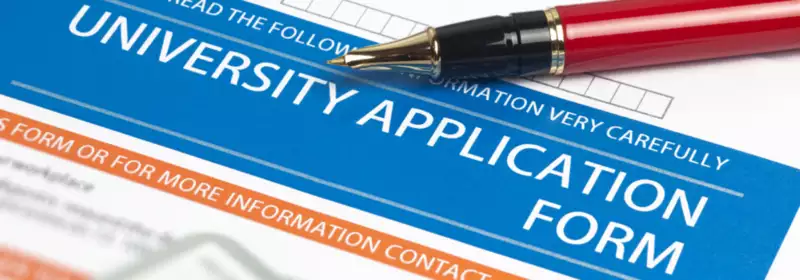As a psychologist, you will provide support to people of all ages who are dealing with complex mental health illnesses. These could be anything from bipolar disorder to severe depression. You’ll support them through a range of psychological treatments like acceptance and commitment therapy, CBT or interpersonal therapy.
Before you can practice as a psychologist, you need to get qualified and obtain registration. That way, you’re able to treat severe cases of mental ill-health safely, effectively and legally.
You’ll first have to qualify and register as a clinical psychologist, then you can move into mental health specialisation. Where you can pursue roles in the growing sector of mental health support.
The majority of employment opportunities are within the NHS. Around 95% of clinical psychologists work there, but you can also find opportunities within private practice too.
Whichever route you pursue, starting salaries are generally over £30,000 for graduate clinical psychologists. This can reach over £100,000 a year with seniority and experience.
To help you get started, we’ve detailed the steps you need to take to meet the academic requirements for employment. So you know exactly what you need to do to qualify and reach your career goal and become a mental health psychologist.

Education
Certain titles within psychology are legally protected, and clinical psychologists are one of them. This means the role is regulated and protected by law, to ensure the public are treated by registered professionals.
As such, you need to complete an undergraduate degree accredited by the British Psychological Society (BPS). Then a Clinical Psychology doctorate before you can register with the Health and Care Professions Council (HCPC).
A Levels or Equivalent Level 3 Qualifications
In order to enrol on an accredited degree, you’ll need to first meet course entry requirements. However, each university has its own entry requirements, so be sure to investigate what your preferred university asks for beforehand.
Generally, you’ll need relevant A Levels or equivalent Level 3 qualifications. These prove a number of things to your desired university. Namely, that you can handle specific subject areas like science and math, and you can cope with degree level study.
As such, many universities will look for A Levels in biology, mathematics, English, history, economics or social science subjects. It’s not essential to have an A Level in psychology, but naturally, this provides a good introduction to the subject.
You will be expected to have predominantly grades A-C (4-9) at GCSE to enrol.
You can also enrol onto university degrees once you have completed a relevant Access to Higher Education Diploma. An Access to HE Diploma (Psychology) provides a recognised alternative to A Level study and aims to prepare you for psychology degrees.
As psychology is the second most popular degree choice in the UK, the competition for course places is fierce. So it’s best to get the highest marks possible to give your application the best chance of success. It’s also good to note that entry requirements can change in line with this demand.

Undergraduate Degree
At university, you’ll need to study a psychology related degree that’s accredited by the British Psychological Society (BPS). These are generally three years full-time, or four years with a placement year in the third year.
A number of these degrees now pay particular attention to mental health related studies. Which can be a great option to start aligning yourself with your preferred specialism.
If you’ve already studied another degree, there are accredited conversion courses you can take. These act as an intense version of the psychology related degree you’d like to study. Which you can complete in just one year if studied full-time. Afterwards, you’ll be at the same point in your journey as those who have studied the full 3-4 year degree.
You’ll then need to apply for Graduate Basis for Chartered Membership (GBC) to get a place on a doctorate course. For this, you’ll need to have achieved a first-class honours degree or at least a 2:2, and have relevant work experience.
Post Graduate Degree
To get registration with the Health and Care Professions Council (HCPC) you need to complete three years of postgraduate training. This will provide you with an approved doctorate in clinical psychology that is needed for employment.
Some aspiring clinical psychologists bulk out their application for doctorate programmes with masters and PhD qualifications. But this isn’t essential to get a place on a course.
To apply for your doctorate programme, you’ll generally go through the Clearing House for Postgraduate Courses in Clinical Psychology. However, a number of universities have their own admissions process. Either way, applications for these programmes are accepted between September and November each year.
Most of the places on clinical psychology courses are funded by The National Health Service (NHS). So you’ll generally work for them as a trainee clinical psychologist while you study. The starting salary for which falls at the bottom of band 6 at £31,365 per year.
Throughout your training, you’ll follow a structured programme of learning. This blends both academic and practical exercises, which include clinical placements and research. After successfully completing your doctorate, you can apply for registration with the HCPC and chartered status with the BPS.

Work Experience
As briefly mentioned, you need work experience to get a place on a doctorate course. The requirements for which are quite specific.
The work experience you get needs to be in a highly relevant area to clinical psychology and last for at least 12 months. What’s more, each doctorate course provider can specify how they want you to gain this experience. So it’s wise to check this with them well in advance.
This is where the offer of a four year undergraduate degree becomes quite appealing. Having the set year in industry in the third year provides the perfect opportunity to get this experience.
You could seek a placement as an assistant psychologist in clinical psychology departments within the NHS. This is often the preferred type of experience for doctorate programmes as you work under the supervision of a registered clinical psychologist. Gaining highly relevant hands-on training.
You could also work in clinically-oriented research roles which would contribute to your understanding of clinical psychology practices. Otherwise, paid or voluntary experience in related areas like social work, nursing environments or ideally, mental health services is beneficial.
Overall, your experience needs to be working with groups and services directly applicable to clinical psychology. So you can interact with individuals with both health and psychological difficulties and become better prepared for this career path.
Once qualified, you’ll be free to specialise and move into the role of a mental health psychologist.
Get Started with an Online Course
If you don’t have the A Levels to apply for a psychology related degree at university, we can help.
learndirect is the leading UK distance learning provider. Offering many Access to Higher Education Diplomas that provide profession-specific education and stand in place of A Level qualifications.
Study any of our Access to HE Diplomas in psychology, combined psychology and sociology or psychology and criminology. These will give you the foundational knowledge you need to study an accredited psychology related degree at the undergraduate level.
What’s more, each course is studied online, from home, so you can learn comfortably around your existing schedule.
Find out more about our Access to Higher Education Diploma (Psychology) by clicking the link below.



















